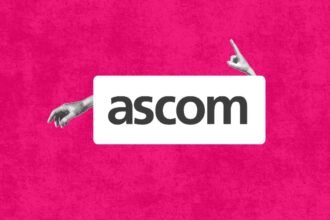Globally, breaking bias women entrepreneurship is less a buzzword than a daily grind. In 2023, mixed‑gender U.S. startups pulled in 25% of VC dollars—$34.7 billion—yet all‑women teams saw just 3% of deals and $2.8 billion, their lowest share since 2016 . Female founders still capture only 2% of all VC despite operating 38% of U.S. businesses. Those stark gaps remind us why breaking bias demands both system shifts and founder grit.
How Inclusion Should Go Beyond Representation
Tokenism Isn’t Empowerment
Inviting a woman to speak on a panel without real influence is tokenism—pink-washing that checks a DEI box but leaves power untouched. In 2014, Maha Shirah founded SHEWORKS as Saudi Arabia’s first licensed women’s business hub and incubator, transforming it into a digital incubator when COVID‑19 hit. Yet even as a recognized speaker and mentor, Shirah recalls being invited only to discuss “culture” topics while male colleagues tackled strategy—an experience that taught her visibility alone doesn’t shift decision‑making. Breaking bias women entrepreneurship means moving from visibility to real influence and vote‑bearing roles.
Maha’s Metrics‑Driven Resistance
To challenge assumptions about her role, Shirah began embedding hard performance metrics into every board update—showing incubated startups’ revenue growth and job creation. By co‑presenting dashboards alongside her male counterparts, she forced investors and partners to measure impact, not gender—a form of quiet resistance at the heart of breaking bias.
Biases in Investor and Ecosystem Expectations
Promotion vs. Prevention -The Question Divide
A seminal HBR study found investors ask men “How will you win?”—promotion questions—while women hear “How will you avoid failure?”—prevention prompts . Founders facing promotion questions raise 7× more capital than those fielding prevention queries. This framing gap forces women to defend against risk instead of selling vision—perpetuating underinvestment.
The Great Funding Gap
– Mixed teams: 25% of VC dollars ($34.7 B) across 3,230 deals in 2023
– All‑women teams: $2.8 B across 867 deals (3%)—lowest since 2016
– Seed stage: Women get 14% of dollars; average seed is $3.3 M vs. $3.95 M for men.
These numbers underscore why **breaking bias women entrepreneurship** can’t be about optics alone—it requires rethinking due‑diligence, term sheets, and pitch prep.
The Unspoken Ambition Test – Marriage & Motherhood
The “Maternal Wall” Bias
The “maternal wall” describes how merely expressing plans for family can trigger assumptions that ambition will wane.
Halima Jumani’s Stake in Sustained Ambition
As CEO of Kibsons International in Dubai, Halima Jumani navigated 25 years of leadership and motherhood, yet partners sometimes questioned her long‑term focus after each child’s birth. Rather than sidestep the bias, Jumani integrated family into her leadership narrative—highlighting how her operational pivots (like developing Kibsons’ driver‑app for frontline staff) improved both business outcomes and employee well‑being. This proactive framing is a form of quiet resistance that advances women entrepreneurship by normalizing family‑inclusive leadership.
The Unspoken Burden of “Unchanged Ambition”
Even without children, women founders face the “unchanged ambition” test. Investors assume marriage or motherhood will dilute focus, forcing female founders to repeatedly demonstrate they’re “all in.” Despite 47% of angel investors now being women—nearly half of all angels—formal VC remains 85% male decision‑makers , perpetuating homophily and assumption traps.
Pakistani Pioneer – Cheema Kanwal’s Mission-Driven Pivot
After a 16-year corporate tenure at Cisco, Kanwal Cheema left her senior role to found My Impact Meter—Pakistan’s first digital charity platform—because she saw philanthropy as lacking accountability. She recalls investors initially pigeon-holing her as a CSR consultant rather than a scalable entrepreneur. To break that bias, Cheema embedded four data-driven pillars—impact monitoring, incentivization, optimization, and sustainability—into every pitch, demonstrating in real time how donors can track health and education outcomes. Her mantra that “being good is profitable” reframed investor questions from “How will you avoid failure?” to “How will you win?”, unlocking growth capital and inspiring a new generation of Pakistani women to build purpose-led ventures.
Pipeline Solutions – From Token Fixes to Structural Change
Hire Women Interns—Demystify the Ecosystem Early
Programs that place female interns in VC and startup teams double their chance of founding or joining high‑growth ventures later (All Raise, 2023). Early exposure normalizes leadership roles for women and helps cement confidence—key for breaking bias women entrepreneurship** at the root.
Mentorship vs. Sponsorship
– Mentorship gives skills: Women mentored by peers report a 34% sales boost and 30% profit gain (Ugandan study) .
– Sponsorship unlocks doors: Senior advocates secure follow‑on funding at **2×** the rate of mentorship alone (Snellman & Solal, 2022) .
Yet only 53% of women feel trained to mentor, and just 21% of trans founders have sponsors vs. 32% of cis peers —highlighting gaps in formal sponsor networks.
Grassroots Angel Networks
While institutional VC lags, 47% of angel investors are women in 2023, driving $5 billion into startups they believe in . Community‑driven funding bypasses institutional bias and showcases a model for breaking bias women entrepreneurship from the ground up.
Accountability & Transparency
VC firms must track and publicly report:
– % of pitches from women
– % advancing to due diligence
– Average round size by gender
Funds that do this—like Female Founders Fund (14% seed share, $3.3 M rounds in 2022)—use data to fuel targeted programs. Embedding bias audits and gender‑lens investing makes women entrepreneurship measurable, not optional.
Pioneering Progress – Maha Shirah & Halima Jumani Shaping MENA’s Startup Ecosystem
In MENA’s emerging ecosystems, token panels and homophily persist—but real leaders are rewriting the script. Maha Shirah’s SHEWORKS incubator set Saudi Arabia’s first female‑focused business hub, digitally empowering hundreds of entrepreneurs during the pandemic. Halima Jumani’s leadership at Kibsons redefined e‑commerce logistics for fresh produce—introducing driver‑friendly apps and upholding price stability through COVID‑19, proving that family life and growth can coexist. Their quiet acts of resistance—metrics‑driven pitches, family‑inclusive decks—are everyday examples of breaking bias in MENA.
Rewiring the System – Toward Genuine Equity in Women’s Entrepreneurship
First, token representation is hollow without real power; therefore, to truly advance, we must shift actual decision‑making authority.
Moreover, the language used by investors plays a crucial role—specifically, promotion‑oriented questions can unlock capital; thus, it’s essential to train venture capitalists to apply them equitably.
Furthermore, life milestones, such as starting a family, shouldn’t be viewed as liabilities; instead, reframing family as an asset is a vital part of breaking biases for women entrepreneurs.
Additionally, quiet acts of resistance—for example, inclusive organizational charts, thoughtful memos, and slide decks that acknowledge spousal contributions—can subtly redefine norms.
Finally, structural pipeline fixes, including internships, mentorship, sponsorship, and transparency, are fundamental to fueling lasting change.
What if we stopped teaching women to survive bias and instead rewired the entire ecosystem to champion equity in breaking bias women entrepreneurship?
References
– PitchBook. 3 takeaways from VC funding for female founders. https://pitchbook.com/news/articles/female-founders-vc-year-in-review-2023
– Crunchbase News. US VC funding for female founders peaked in 2023. https://news.crunchbase.com/diversity/us-vc-funding-female-founders-peaked-2023-ai-openai-anthropic/
– Carta. Annual Equity Report 2023. https://carta.com/data/equity-report-2023/
– TechCrunch. Funding for female founders remained consistent in 2023. https://techcrunch.com/2024/01/10/funding-for-female-founders-remained-consistent-in-2023/
– Harvard Business Review. How Men and Women Entrepreneurs Are Questioned Differently. https://hbr.org/2018/06/how-men-and-women-entrepreneurs-are-questioned-differently
– Harvard Business Review. The Maternal Wall. https://hbr.org/2004/10/the-maternal-wall
– Harvard Business Review. How Biases About Motherhood Impact All Women at Work. https://hbr.org/2024/07/how-biases-about-motherhood-impact-all-women-at-work
– All Raise. All Raise Progress Report 2023. https://www.allraise.org/progress-report-2023
– Sifted. 10× more money goes to VC funds owned by all‑male vs all‑female. https://sifted.eu/articles/10x-more-money-for-male-owned-vcs
– Markets Media. Female Founders Had Smaller Share of US VC Deals. https://www.marketsmedia.com/female-founders-had-smaller-share-of-us-vc-deal/
– Forbes Councils. Investing In Women: A Strategic Imperative for Diverse and Profitable Venture Capital. https://www.forbes.com/councils/forbesfinancecouncil/2025/01/16/investing-in-women-a-strategic-imperative-for-diverse-and-profitable-venture-capital/
– AngelList. 2023 Angel Investing Demographics. https://angel.co/blog/angel-investing-demographics-2023
– NYCEDC. Diversity in Venture Capital (PDF). https://edc.nyc/sites/default/files/2023-10/NYCEDC_Diversity%20in%20Venture%20Capital_Report.pdf
– Business Insider. The secret of business success. https://www.businessinsider.com/successful-businesses-secret-funding-job-company-growth-money-financing-startups-2025-3
– The Guardian. Women’s health tech ‘less likely’ to get funding if woman is on founding team. https://www.theguardian.com/society/2024/oct/08/womens-health-tech-less-likely-to-get-funding-if-woman-is-on-founding-team
– Financial Times. Lack of female-led ‘unicorns’ shows the need for change in the VC world. https://www.ft.com/content/6d537637-03a0-4073-b692-0c4e431d060b




